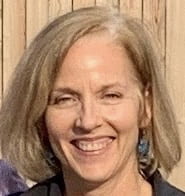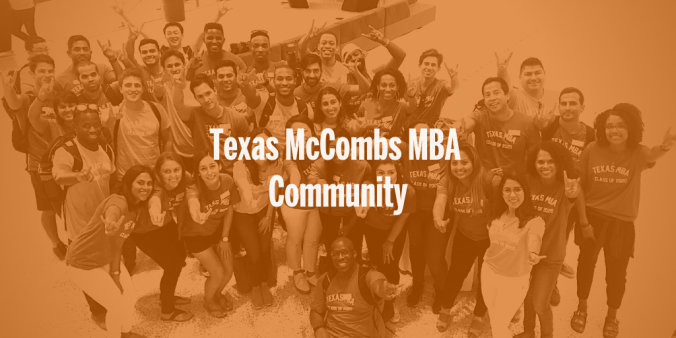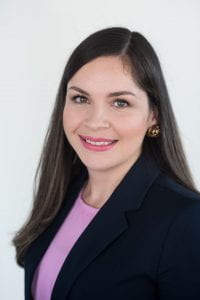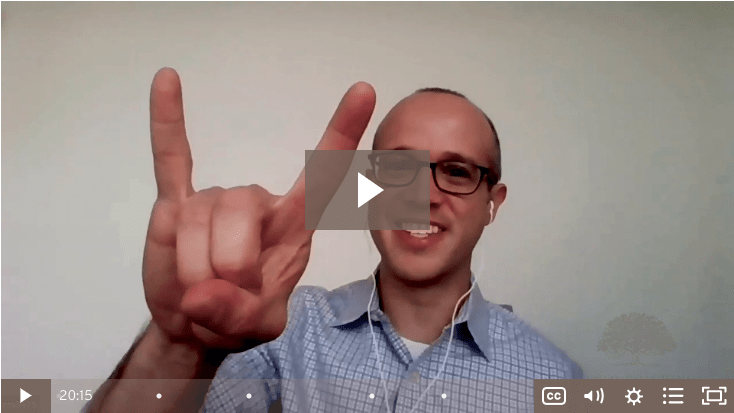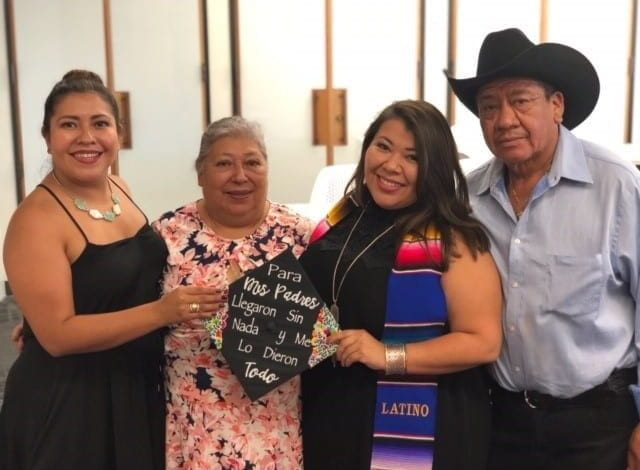When Texas McCombs MBA at Houston student, Elsa Wright, has a goal, she meets it. While working in the waste management and sustainability industry in Houston, Texas, her goal was senior leadership at her company. Like many professional women, Elsa wondered if she would be able to achieve all her career goals alongside her personal goal of having a family. Below, Elsa shares how she navigated these goals & priorities, overcame her struggle with imposter syndrome, and eventually enrolled in the MBA program. Juggling graduate degree work, motherhood, and marriage in the midst of a pandemic has definitely been a challenge, but Elsa has shown that determination and belief in oneself will ultimately lead you to success.
Getting Her MBA
Elsa was eager to gain the foundational knowledge and skills needed to move into a leadership role in her career and knew an MBA from Texas McCombs could get her there. As a minority woman and mother, Elsa faced the realities of the world head-on.
“With recent events in the news, a lot of people have become more aware of the struggles that minorities face every day — struggles that stem into career growth,” she says. “I struggled with the idea that I had to achieve a master’s degree to be on the same playing field as many of my white male counterparts who hadn’t. Intelligence could be equally distributed among our society, but opportunities are not always.”
Elsa says she has struggled with imposter syndrome her entire life and her biggest piece of advice to anyone, especially women and mothers, considering an MBA is: “Just do it!”
“I have personally spent more time considering the idea and deciding to make the leap than I have spent actually getting my MBA,” Elsa says. “I felt that maybe I wasn’t ready, that I should wait for my son to get older, or that an MBA is just too competitive and I might not get in.”
Impostor syndrome— the false belief that others have overestimated your capabilities or that you’re not good enough— disproportionately affects women more than men — especially women of color. One of the direct factors contributing to impostor syndrome is the lack of women in organizational leadership, according to a 2019 Lean In study. The business world, including the realm of business education, has made strides in recent years, but there is still much work to be done toward equity and gender parity.
When narrowing down her prospective MBA schools, Texas McCombs appealed to her because of the prestige, atmosphere, and flexibility it offered.
“As I researched MBA programs, I found that Texas McCombs was the highest ranked in Texas. I attended the info sessions, and instantly felt what I like to call ‘the warm and fuzzy feeling.’ I felt welcomed with open arms, and could feel such a forward-thinking attitude that I could not resist being a part of.”
“The Working Professional program understands and respects that, as a working professional, we’re undergoing a journey,” she says. “The program didn’t require a specialization, but instead teaches you how to speak all languages of business, which allows me to explore where my career may take me instead of fixating on a specific career path.”
The moment she stepped on campus, Elsa knew that Texas McCombs would be her home for the next two years.
“I’ll never forget, it was our very first day of Austin Intensives and Assistant Dean, Joe Stephens, spoke in front of the entire Working Professional class of ’21: He said:
‘For those of you that may suffer from imposter syndrome and feel like you don’t belong here or deserve to be here, I am here to tell you that you do belong, and you do deserve it. We chose you because you have something to offer this program.’
To this day, those words resonate inside me and push me forward to make a difference.”





